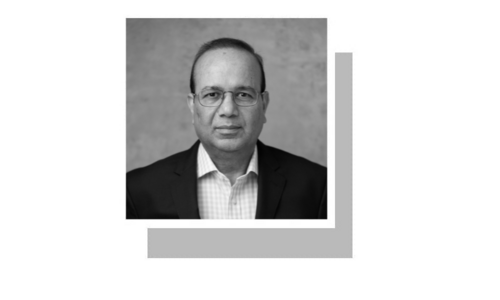BAAN GA DOH (Thailand): Guarded by Thai soldiers from rebel attacks, an 81-year-old grandmother — the last Buddhist in a Muslim village — refuses to abandon her home, defying a wider split between insurgency-plagued communities.
Since violence erupted in the Muslim-dominated Thai deep south in 2004, Jiaw Pongthawil has seen her Buddhist neighbours flee Baan Ga Doh, a remote village in a security “red zone” in Narathiwat province.
She is now the only Buddhist among 1,200 Malay Muslims.
“I’m afraid. I have been attacked many times... but I have nowhere else to go. This is my property. This is my land,” she says, her voice faltering.
It is a demographic shift playing out across the southern provinces of Pattani, Yala and Narathiwat, where a festering rebellion against Bangkok’s rule has killed more than 5,700 people.
Estimates suggest half of the region’s 400,000 Thai Buddhists have fled in the nine years of war, wearied by near-daily attacks against state representatives and their perceived supporters, including many Muslims.
That decline — among a local population of around 1.8 million — may shape tentative peace talks with rebels, according to experts who say nervous Thai Buddhists are pressing Bangkok to secure their future.
Many Muslims lament the growing split from their erstwhile neighbours.
But there is also little love lost for Thai authorities after decades of alleged human rights abuses and efforts to weave the culturally distinct south into the kingdom.
Those have included handing land and high status official jobs to Thai Buddhist migrants, stoking resentment among the local population and skewing the economic fortunes of the two groups.
Jiaw’s home has been attacked three times in recent years despite the deployment of a squad of soldiers inside her compound.
In the last attack, in July, a homemade grenade was lobbed from the adjacent road but failed to detonate after hitting a 10-metre high security net.
The mother-of-six was widowed in 2007, leaving her alone in a spacious bungalow festooned with dusty curios and weathered posters of Thailand’s revered king.
FORMER NEIGHBOURS NOW LIVING APART: Her military guards, stationed in sand-bagged dug outs around the compound, say she is a courageous Thai elder who they are willing to defend with their lives.
Security forces in the violence-racked region are often assigned to guard people of both religions who are considered targets of the militants for their supposed collusion with the state, with teams of troops flanking monks on their rounds and teachers as they make their way to and from school.
But while Jiaw is grateful for their protection, she is saddened that most of her Muslim neighbours no longer visit her.
“We used to live together... we helped each other. But now they (Muslims) want all of us out. Buddhists and Muslims live apart,” she says.
The Southern Border Provinces Administration Centre, which governs the restive region, said there had been no exodus of Thais, insisting Buddhists were in fact relocating to the conflict zone.
But the available figures paint a starkly different picture. The last survey in 2010 by the National Statistical Office found 288,000 Buddhists living in the three provinces, 20 per cent fewer than a pre-war count in 2000.
Academics say the numbers have slumped further since 2010 in parallel with a rise in violence.
The flight marks a success for the rebels, a shadowy collection of groups who are fighting for a form of autonomy from Thailand, which annexed the south a century ago. Danger lies in the growing divide, according to Srisompob Jitpiromsri of Prince of Songkhla University in Pattani.
Once seen as the champions of the Thai state in its southernmost territory, Buddhists are anxiously watching peace talks, fearing their influence could be eroded.
“Any new political settlement will be a very bitter pill for Thai Buddhists to swallow,” says Srisompob, who is an observer at the talks.
“Tensions will reach a higher level if any settlement doesn’t resolve their concerns,” he says, warning “sectarian violence could be the consequence” if a form of self-government emerges.
SECURITY FORCES ACCUSED OF RIGHTS ABUSES: With violence — by both rebels and Thai security forces — setting the temperature for community relations, hopes for reconciliation appear distant.
Checkpoints restrict access to Thai areas of many villages, while soldiers guard Buddhist temples and heavily-armed patrols scour Muslim hamlets for militants, spreading fear among remote and traditional communities.
So-called red zones — where militant activity is deemed to be high — are the most clearly split, although pluralism can still be found in the south’s city centres which are markedly safer.
But even there long-established Thai and Thai-Chinese merchant families are in retreat — many have sold up or sent their families away.
For their part Muslims have long railed at what they see as the Thai state riding roughshod over their Melayu culture.
Widespread allegations of extra-judicial killings and other human rights abuses by security forces compound the hostility.
While the Thai administration has taken some steps to appoint more Malay Muslims to its ranks, locals say casual prejudice lingers, embodied by the description of them as ‘khek’ — the Thai word for guest.
In Baan Ga Doh local headman Uzman Ahmad, who is a Muslim, remembers Jiaw from his childhood when the village was at peace.
“I really wanted the Buddhists to stay. We were brothers,” he says, a pistol holstered by his side. “Maybe one day we can live together again, but now it is too dangerous for them.”—AFP













































Dear visitor, the comments section is undergoing an overhaul and will return soon.